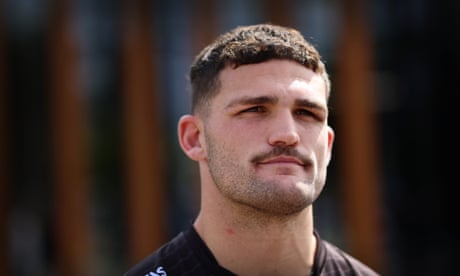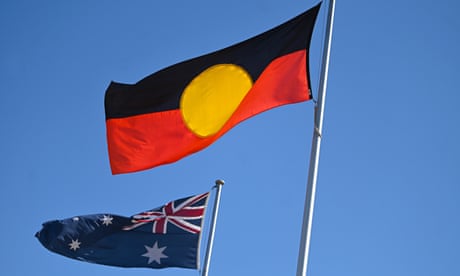Extract from The Guardian

Both Anthony Albanese and Peter Dutton are now positioning for the most likely result – a defeat of the constitutionally enshrined First Nations advisory body.
But no remains doggedly in front, and strategists remain pessimistic that Australians will rally behind the Indigenous voice to parliament in sufficient numbers to carry the day on 14 October.
With two weeks to go, private polling undertaken for the yes campaign is said to be even more sobering than the public polling.
If you are watching events closely, you will have noticed that both Anthony Albanese and Peter Dutton are now positioning for the most likely result – a defeat of the constitutionally enshrined First Nations advisory body. This positioning and pivoting is happening for different reasons.
Right now, Albanese would like voters to think very hard about waking up to a no result on 15 October. Let’s step through the prime minister’s objective.
Albanese evidently hopes that concrete, negative visualisation becomes its own call to action over the coming fortnight. Making “no” real, lived, and tangible (as opposed to a hypothetical argument at your cousin’s wedding) might spur some waverers – some soft noes – to vote yes.
The prime minister is starting to crystallise the choice. Over the past few days, Albanese has told voters they can either have the status quo, or they can have something better.
Albanese says if we vote yes, Australia can have a “non-binding advisory committee” (apparently less scary than a voice) “so that we can listen to Indigenous Australians about matters that affect them”. Australians can choose yes, “which is positive and optimistic and about the future – or [we] have no, which is more of the same”.
Albanese is urging us to think about how we will feel waking up the day after Australia votes no.
The prime minister said on Monday the voice was about Indigenous Australians.
But he also said explicitly it was about the rest of us – “how we feel about ourselves, whether we feel better about ourselves”.
If we vote no, we wake up in a country “shrinking in on ourselves”. Alternatively, we can choose to feel good, like we did when Kevin Rudd said sorry to the stolen generations or when Australia voted yes to marriage equality.
Australians can wake up on 15 October in “a country that’s more reconciled, with a country that’s stronger, with a country that projects ourselves as being more confident about who we are and the fact we share this continent with the oldest continuous culture on earth”.
Or we can wake up a long way from the sunny uplands. In No Country.
For Albanese, focusing on the probability of no is an effort to build the yes vote. By contrast, Dutton has been focused on no exclusively because permanent residency in No Country is the means of wounding a progressive prime minister.
The opposition leader’s opening sortie on the referendum was that Australians must vote no because this voice thing means division and division is bad.
Railing against the horrors of division was always quite the flex from one of the most divisive political figures of his generation. But Dutton has landed it. Both prophet and protagonist, Dutton has made his division manifest.
Having pitched the voice as thermonuclear division, and having achieved his objective of voters repeating his allegation back to pollsters as fact, Dutton has been pivoting for the past few weeks to a no vote being a proxy for prime ministerial incompetence.
Why? Dutton is already looking beyond 14 October – to the open country between the referendum and the next federal election.
Polls tell us Dutton is already very well-known and not very well liked. Crushing the voice isn’t a strategy for being liked, except among people who already vote for you, and among a chunk of Labor’s traditional supporters, who may or may not convert in 2025.
Being relentlessly negative is not a strategy for convincing undecided, disengaged voters you are worth a look. It is not a strategy for winning back the teal seats.
So Dutton needs to move on quickly from the specifics of where he is now. He’s already in the getaway car, chasing phase two of his offensive – convincing voters the incumbent, Albanese, is an idiot.
Any failure of the voice can’t be Dutton’s fault for choosing not to lend bipartisanship to the proposal; it has to be That Other Guy. Hubris? Gormless? You decide, dear voter; it’s a nimble bit of gaslighting – how dare the prime minister visit this gut-wrenching failure of reconciliation on an unsuspecting nation.
The Liberal leader limbered up for his competence pivot in the last week of the last parliamentary sitting, with a sequence of questions alleging the imminent failure of the referendum was confirmation of Albanese’s limitations.
Musing on his theme more recently, Dutton noted: “I think the prime minister finds himself in a position now where he’s turned 60% support for the voice into 40% support for the voice.” Dutton felt this was “of his own making”.
Variations on a theme. “There are now more than one in three Labor voters who are voting no on 14 October. That is of the prime minister’s own doing. He’s driven people away from the yes vote to the no vote because, let’s be very frank, he hasn’t given the detail and this has been a deliberate strategy.”
Will this work? It’s too soon to say. First Australians have to choose. Yes or no.


No comments:
Post a Comment